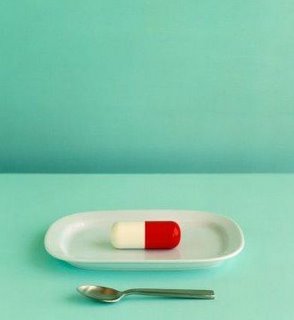
"Depression patients should realize that depression is a chronic illness just like diabetes or asthma. Most cases of depression are caused by a chemical imbalance in the brain.
People experiencing depression feel hopeless. They may have feelings of worthlessness and experience a loss of interest in every-day activities such as work, hobbies or physical intimacy.
Many factors can trigger depression such as: being out of work, serious illness, divorce, flunking out of school, loss of a loved one. Sometimes there is no apparent factor that triggers a depression.
Fortunately, depression is a highly treatable condition. If you are diagnosed with depression and you take the medications that your doctor prescribes, there is an excellent chance that your depression will fade away, like a bad dream.
Scientific studies have determined that antidepressants work best when they are combined with counseling, such as seeing a psychiatrist, psychologist, social worker or other health professional on a regular basis.
It is essential that depressed people who are on medication do not discontinue taking their medication even when they feel great. You need to take your medications religiously every day regardless of how you feel.
If you discontinue taking your medications without the advice and approval of your doctor, there is a good chance that you will fall into a tailspin and become depressed again, possibly severely, and the medicines may take longer to work.
Antidepressants are powerful drugs and should never be taken without a doctor's prescription. You don't want to self treat depression (even if you are a doctor) because the consequences could be disastrous.
How can drugs help depression?
The brain communicates with itself through the use of special chemicals called neurotransmitters such as "serotonin" and "norepinephrine".
There is a strong correlation between the amount of these chemicals in the brain and a person's mood. If levels of these chemicals get too low people feel depressed. Doctors elevate these brain chemicals with the use of drugs.
There are many different families of antidepressants available today. The two most common groups are:
- SSRI's (Selective Serotonin Reuptake Inhibitors) These drugs increase the brain's level of serotonin, thus improving mood. SSRI's have also been shown to be useful in the treatment of obsessive-compulsive disorder and some forms of severe shyness.
These drugs come with strong warnings regarding their use in children. There is data to suggest that occasionally when kids take SSRI's some of them engage in self destructive thoughts.
However, many times the benefits of giving your child a SSRI far outweigh the possible side effects. That is a decision for you and your doctor.
They are generally well tolerated and effective. Some common SSRI side effects include: heartburn and drowsiness. They can sometimes produce a transient loss of appetite. SSRI medications can have drug interactions. You should consult with your doctor or pharmacist prior to mixing them with other medications.
- Tricyclic Antidepressants get their name from their chemical structure. This class of drugs is very effective in combating depression but is associated with troublesome side effects such as drowsiness, dry mouth and constipation.
Tricyclic antidepressant medications can have drug interactions. You should consult with your doctor or pharmacist prior to mixing them with other medications.
Other families of antidepressant drugs include the MAOI's (monoamine oxidase Inhibitors). MAOI's are very effective but have potentially life-threatening drug interactions and food interactions. If you are taking a MAOI drug, it is important that you consult with your doctor before you take any other medicines. Your doctor will also tell you which foods to avoid mixing with your medicine."
Sem comentários:
Enviar um comentário